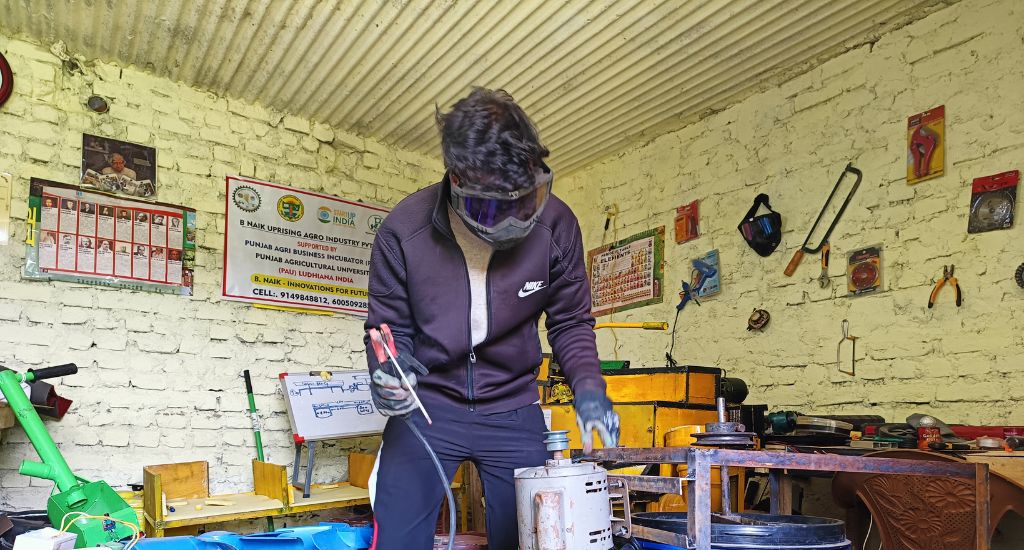
Young innovator revolutionises farming in Kashmir
Engineering graduate Naik Qayoom builds an automatic seed-sowing machine and other agri tools that have found significant attention and demand.

Engineering graduate Naik Qayoom builds an automatic seed-sowing machine and other agri tools that have found significant attention and demand.
Naik Qayoom, a 23-year-old engineering graduate from Kreeri village in south Kashmir’s Anantnag district, has developed an automatic seed-sowing machine that is revolutionising farming in the Union territory known for its apple orchards, rice fields, mustard crops and vegetable gardens.
The machine can be used for both narrow and broadcast seed-sowing methods. It has gained popularity among farmers since its launch in April of this year, with Qayoom already receiving 15 orders.
“It has been a dream come true for me. I worked on many projects before, but this one brought me success,” said the young innovator who is now busy marketing his creation, which has garnered significant attention and demand.
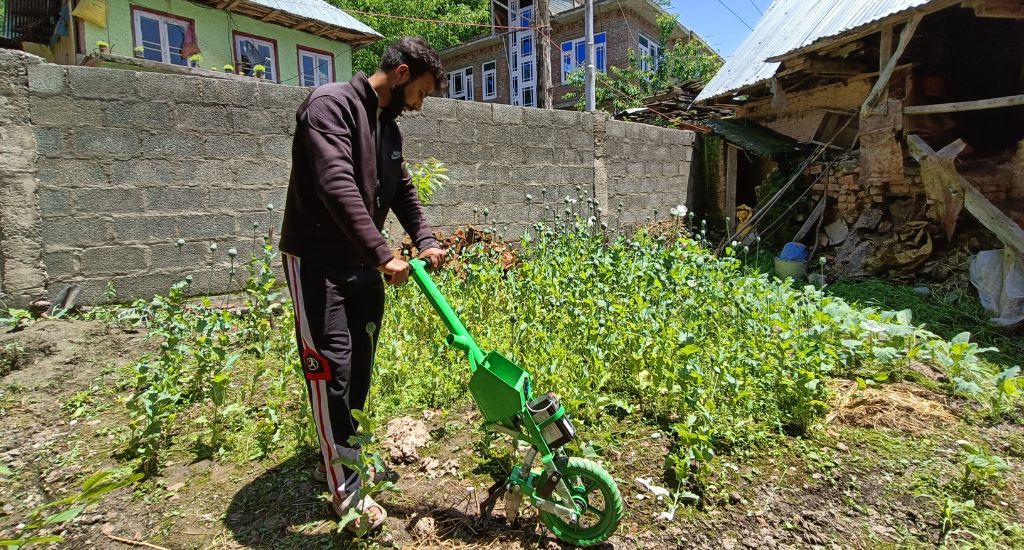
Agriculture forms the backbone of Kashmir’s economy, with nearly 70% of the population directly or indirectly involved in farming and related activities. However, Qayoom noticed that farmers in the region were still using traditional farming methods. He believed that the sector needed innovation to make farming easier and increase productivity.
“I did extensive research and found that agricultural technology has a rich scope in the valley,” he said.
Qayoom had a knack for innovations since childhood, doing experiments at home as a school kid. “When I was in Class 10, I was selected for brief training in robotics at IIT Delhi,” he said.
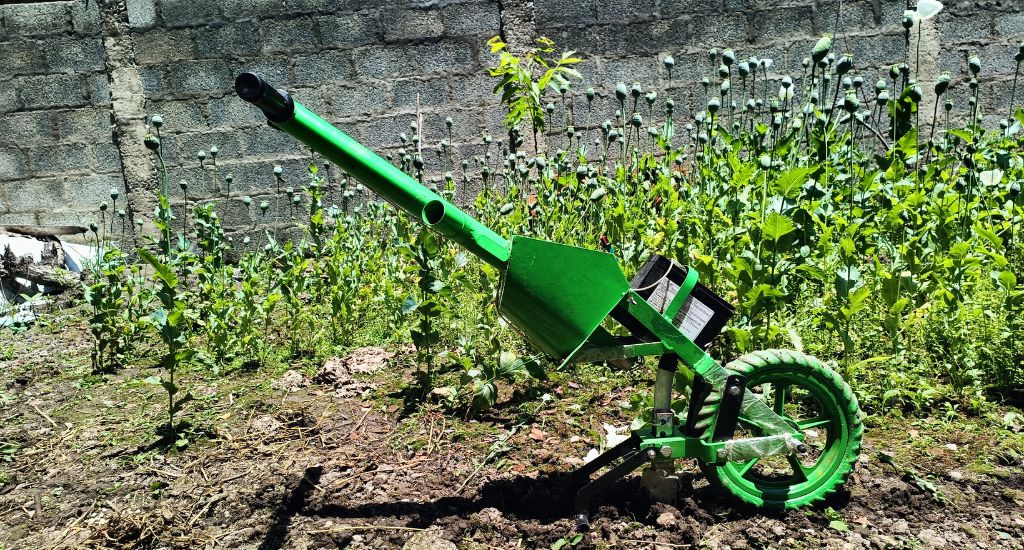
In 2016, Qayoom conceived the idea of an automatic seed-sowing machine that would address the challenges faced by farmers. After conducting extensive research and consulting with farmers, he created a rough model of the machine while pursuing his BTech in electrical at ST Andrews Institute of Technology and Management in New Delhi.
Qayoom’s innovation caught the attention of the National Institute of Information Technology in Srinagar, which appreciated his project and advised him to apply for a grant from the Ministry of Micro, Small and Medium Enterprises (MSME). In 2018, Qayoom received funding of Rs 15 lakh for his seed-sowing project.
Qayoom’s machine is not only effective but also affordable. Unlike costly machines available outside of Kashmir, his creation is lightweight, portable, and costs around Rs 15,000. It offers versatility, allowing farmers to choose between line sowing, point sowing, and random broadcasting or fertilizer spreading methods.
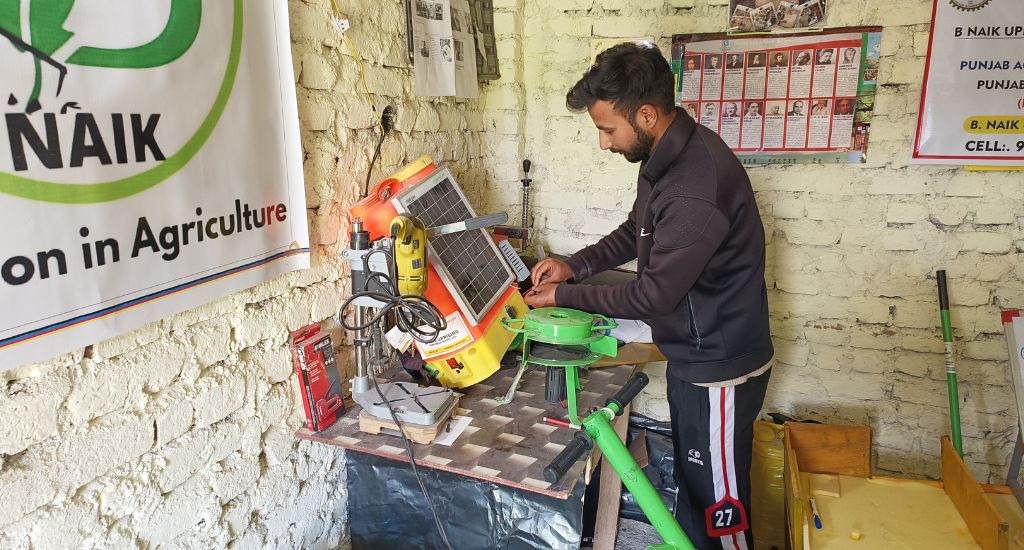
The machine is equipped with a chargeable battery and a fixed solar plate to ensure continuous operation. Weighing only 8 to 10 kilograms, it also features a seed storage bag for convenience.
Apart from the seed-sowing machine, Qayoom has also developed a rough model of an apple-grading machine and is currently working on an automatic walnut washer.
His focus is to provide affordable and portable agro-technological products to the farming community in Kashmir. “I knew how much farmers could afford,” Qayoom said.
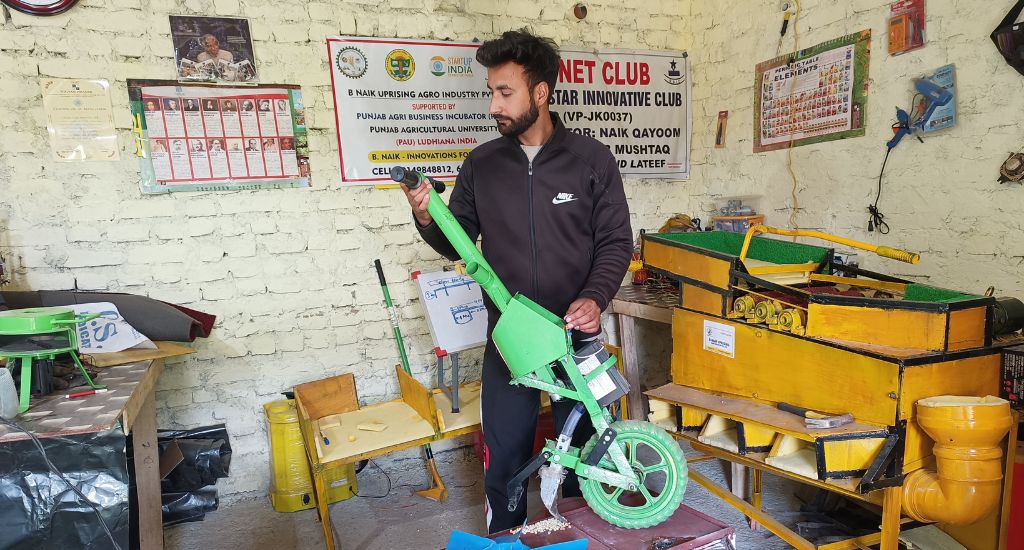
His innovative contributions have been recognised at various levels, and he has been honoured with awards for his remarkable achievements. He has also been invited to deliver lectures at events and conferences both within and outside of Kashmir.
He believes Kashmiri farmers must adapt to the changing times and demands arising from warming temperatures linked to climate change, which are eating into glaciers and ice sheets and exacerbating floods and droughts.
The mountain communities of Kashmir rely on a pattern of seasonal snowmelt to irrigate their crops, with a network of tiny streams threading through swathes of agricultural land. This makes them especially vulnerable when a heating climate brings unexpected rainfall instead of snow and causes glaciers to melt too fast and too early.
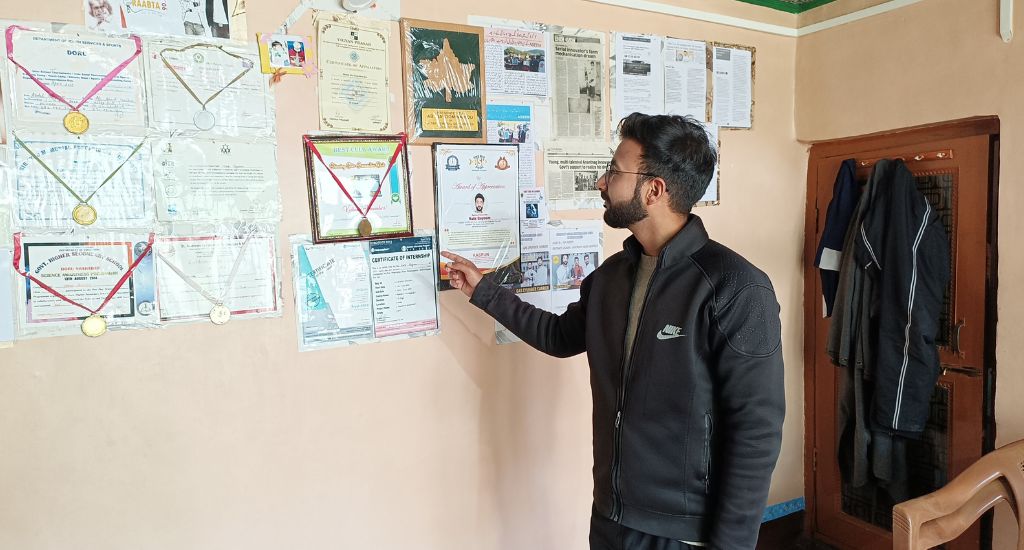
Besides, a growing population and urban sprawl had eaten into traditional farmlands and increased people’s reliance on rice imports in the mountainous region where only a third of the land is cultivable.
The lead image at the top shows Naik Qayoom working in his lab located just outside his home (Photo by Aamir Ali Bhat)
Aamir Ali Bhat is a Kashmir-based journalist and independent researcher whose work has been published in several reputable news outlets and publications.